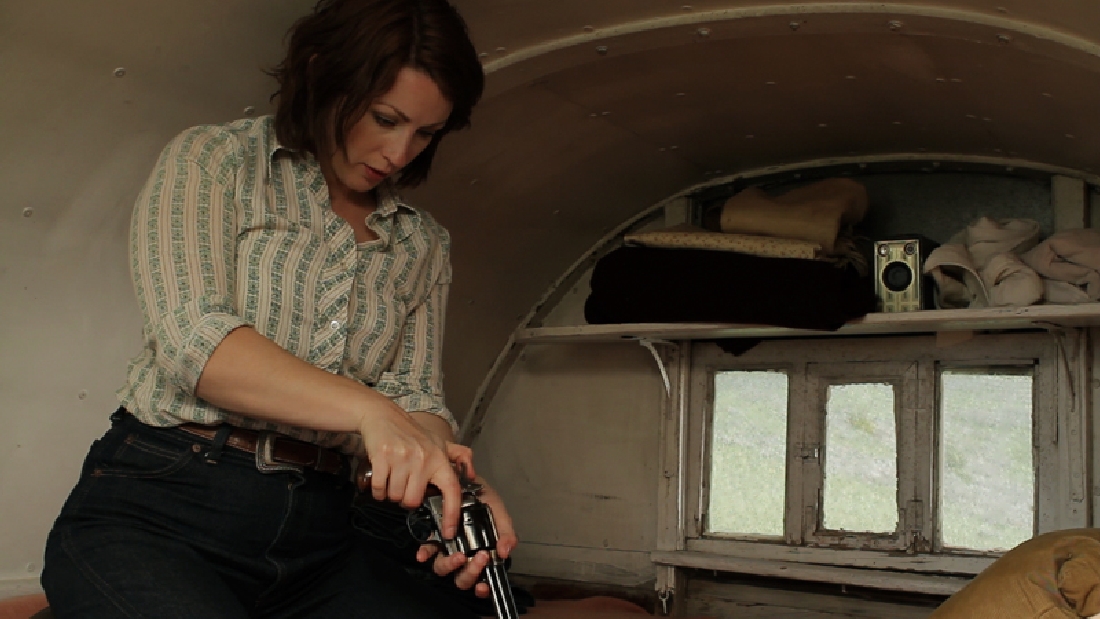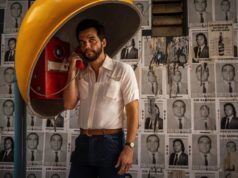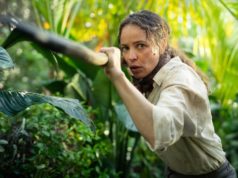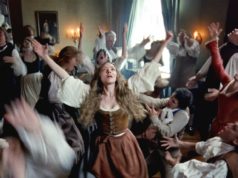At 51, Carolyn Macartney is no wide-eyed newcomer in the world of filmmaking. The Southern Methodist University film professor grew up around films (her mother not only shot but edited her home movies) and has been involved with the artform professionally for decades. Her latest and perhaps most ambitious project is Wanda the Wonderful, her documentary feature about her grandmother that screened this past weekend at the Oak Cliff Film Festival to a nearly packed house. “I am just very happy it was so well received,” she said.
Before graduating from Smith College in 1984, Macartney spent a year as an exchange student at the Camberwell School of Art in England. A friend there suggested that she take an experimental music class. “I realized I was great with sound but bad with melody,” she remembered. “My mom told me I could use her camera, so I thought I’d make a film with music.”
After traveling as far as Berlin and Barcelona to work on films, she carved out a career as a director of photography in New York City, shooting various short films and features plus music videos for the likes of Motley Crüe, Mudhoney, Veruca Salt, and Goo Goo Dolls. However, life in New York drove her to seek a job elsewhere and brought her to North Texas. “I was on vacation in South America, and I was lying in a hammock, and I realized that I’d have to be a multimillionaire to afford any place with a yard in New York,” she said. “I’m thrilled that I can park for free here.”
She had long considered the idea of making a movie about her part-Chickasaw grandmother, who performed under the name Wanda Savage. Born in 1900, Wanda made an itinerant living as a sharpshooter in vaudeville shows, a stuntwoman in Hollywood’s early days, and a brothel manager in a Western town, along the way bearing seven children by four different husbands. Initially, Macartney wanted to make a biopic, but found funding easier to come by for a documentary. While SMU and Macartney’s family pitched in, most of the funding came from the Chickasaw Nation.
Along with interview footage of her family members (some of whom she had never met before), Macartney incorporated dramatic re-enactments of Wanda’s life starring Fort Worth’s Arianne Martin. “I didn’t want a ‘talking heads’ approach, so I shot the interviews with a wide frame,” she said. For the narrative footage, she took a sabbatical from SMU and hired a crew of former students to shoot for three weeks in Wyoming, where the project ran into storms and mud. “I wanted the narrative footage to look different from the interviews, and we had little budget for production design, so I [adjusted] the color. I didn’t want the usual sepia look.”
The footage was shot back in 2010, but postproduction work was completed only two weeks ago. Money troubles were one reason, but Macartney also found it difficult to concentrate during the school year and did most of her work during breaks. “It’s a part of filmmaking that no one talks about,” she said, calling it “lonely, depressing, unglamorous, with no end in sight.”
However, seeing the finished product play to an appreciative audience has been immensely rewarding for her: “I’m really happy to bring the story of a strong, interesting woman to the world and honor my family.”











